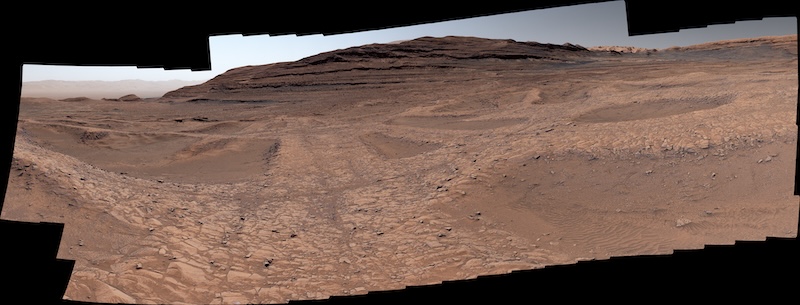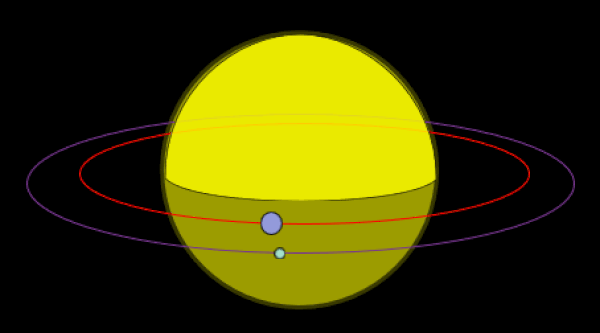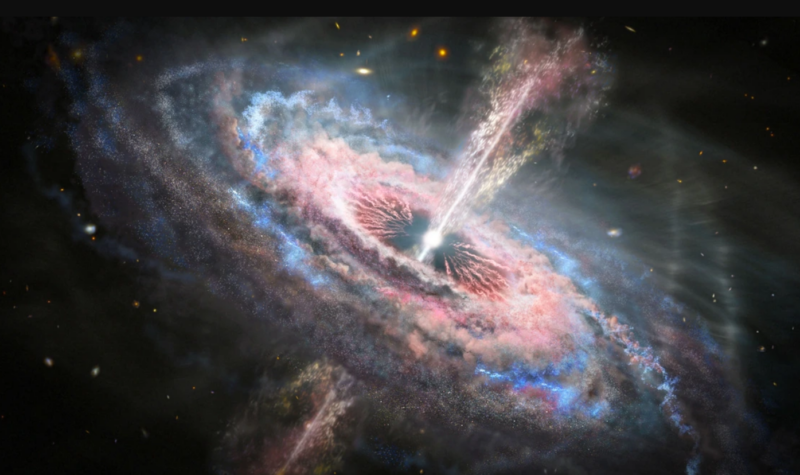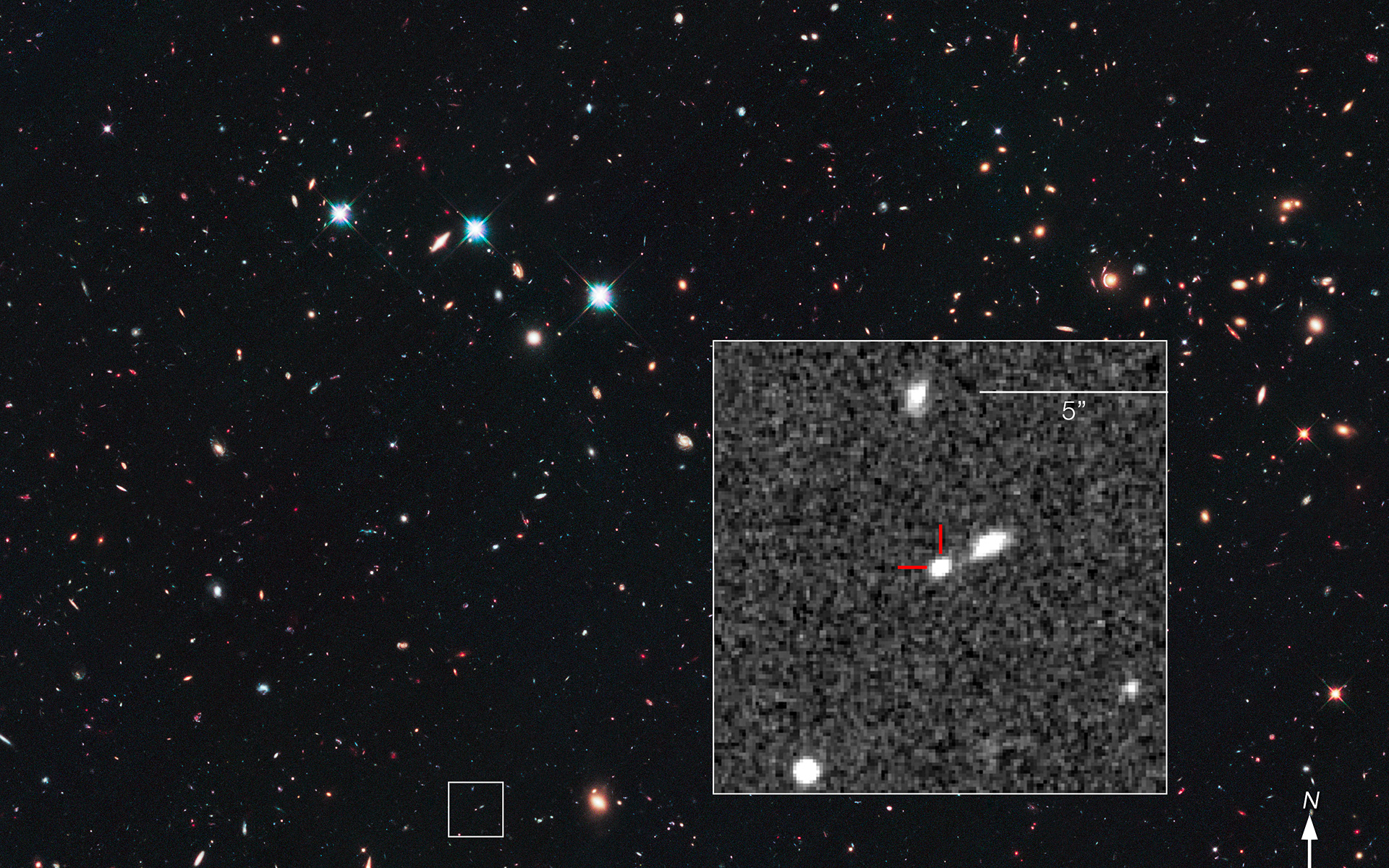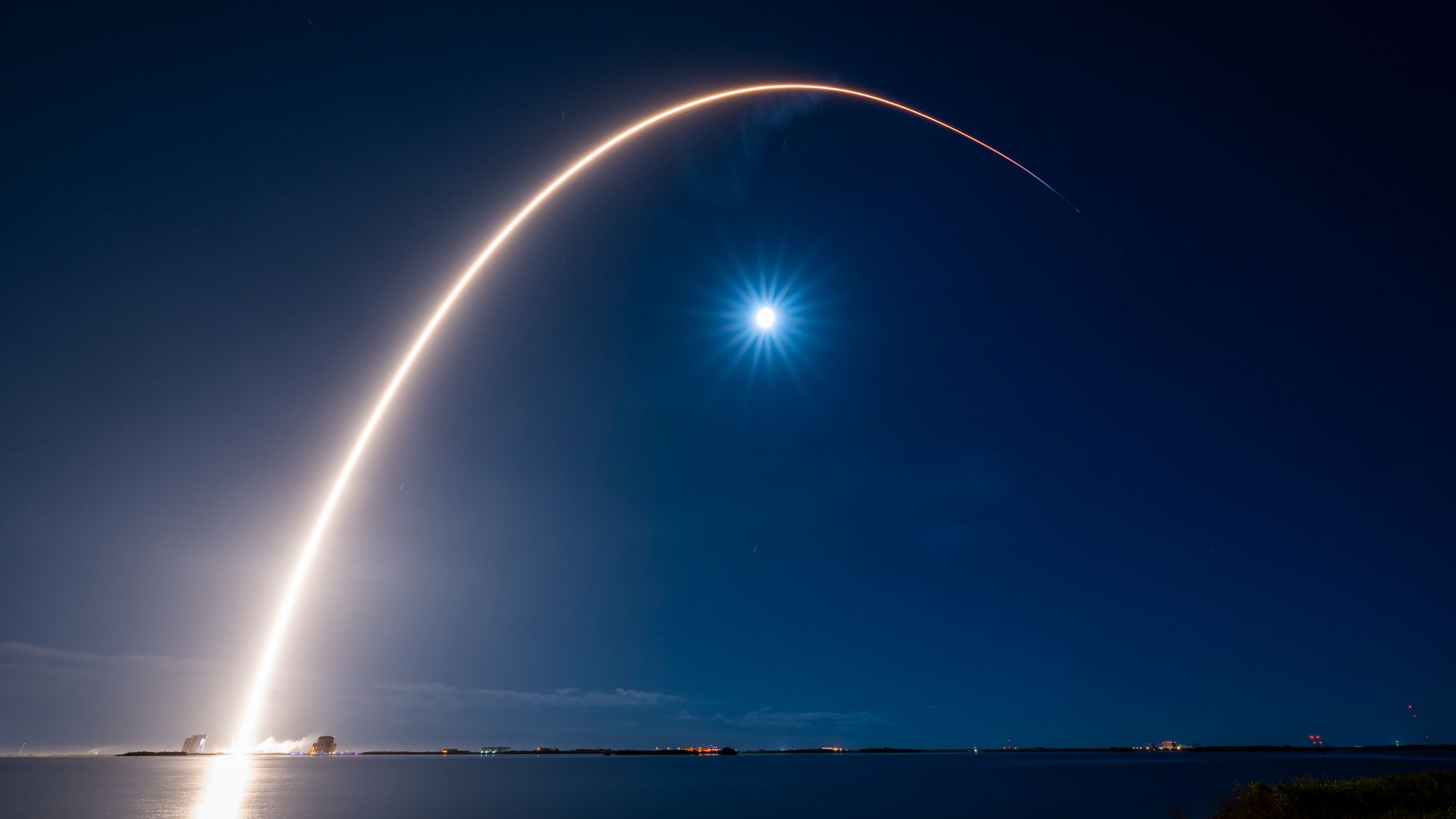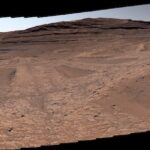Now Reading: Universe’s expansion is slowing down, not speeding up
-
01
Universe’s expansion is slowing down, not speeding up
Universe’s expansion is slowing down, not speeding up
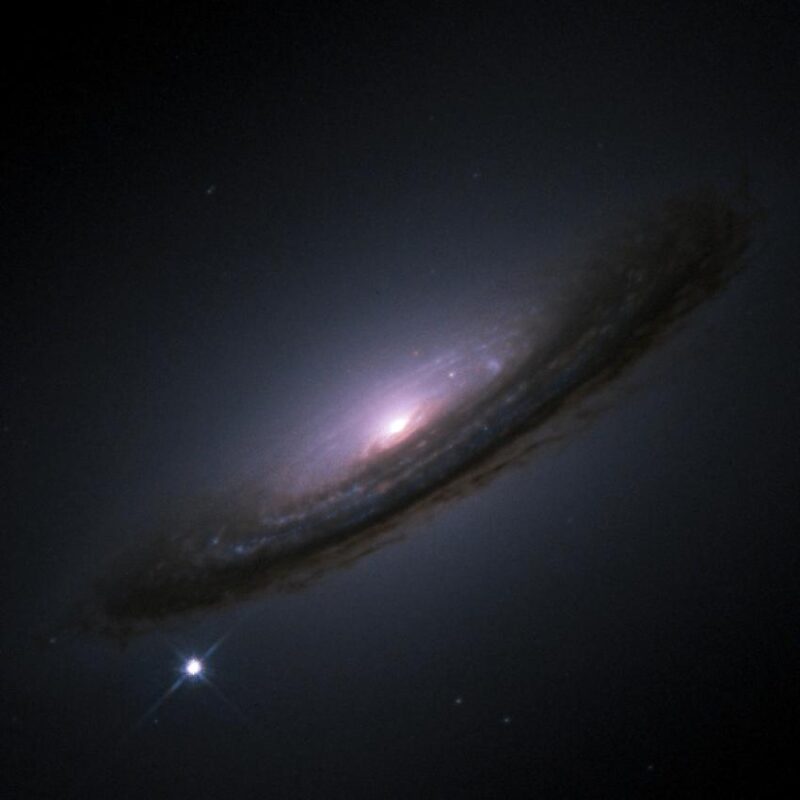
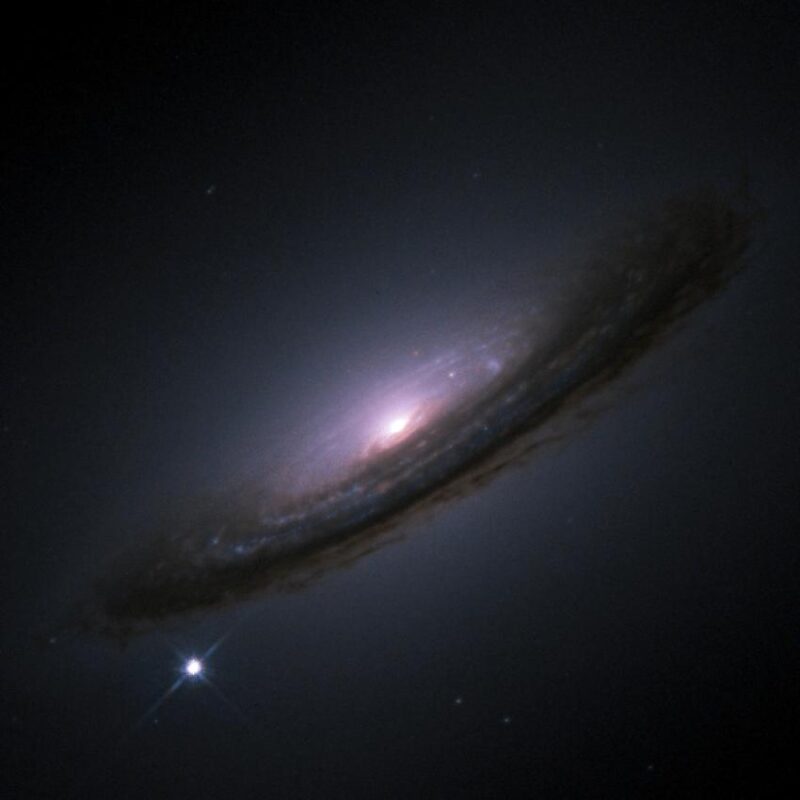
- The universe’s expansion has already begun to slow, says a new study from Yonsei University. This challenges the long-held belief that the universe is rapidly accelerating due to dark energy.
- Researchers found that type Ia supernovas – the “standard candles” used to measure cosmic expansion – are affected by the age of their progenitor stars. Thus, previous evidence for acceleration may be faulty.
- After correcting for this bias, the data no longer fit the standard Lambda-CDM cosmological model. Now, it aligns with newer evidence that dark energy weakens and evolves over time. This would mark a huge paradigm shift in cosmology.
The Royal Astronomical Society published this original story at 00:01 GMT on November 6, 2025. Edits by EarthSky.
Universe’s expansion is slowing down, not speeding up
The universe’s expansion may actually have started to slow rather than accelerating at an ever-increasing rate as previously thought, a new study suggests.
The “remarkable” peer-reviewed findings published November 6, 2025, in Monthly Notices of the Royal Astronomical Society cast doubt on the long-standing theory that a mysterious force known as dark energy is driving distant galaxies away increasingly faster.
Instead, they show no evidence of an accelerating universe.
If the results are confirmed, it could open an entirely new chapter in scientists’ quest to uncover the true nature of dark energy, resolve the Hubble tension and understand the past and future of the universe.
The universe is in a phase of decelerated expansion
Lead researcher Young-Wook Lee of Yonsei University in South Korea said:
Our study shows that the universe has already entered a phase of decelerated expansion at the present epoch and that dark energy evolves with time much more rapidly than previously thought.
If these results are confirmed, it would mark a major paradigm shift in cosmology since the discovery of dark energy 27 years ago.
For the past three decades, astronomers have widely believed that the universe is expanding at an ever-increasing rate. This was driven by an unseen phenomenon called dark energy that acts as a kind of anti-gravity.
This conclusion was based on distance measurements to faraway galaxies using type Ia supernovas. It earned the 2011 Nobel Prize in Physics.
A new look at type 1a supernovas as standard candles
However, a team of astronomers at Yonsei University have now put forward new evidence that type Ia supernovas, long regarded as the universe’s standard candles, are in fact strongly affected by the age of their progenitor stars.
Even after luminosity standardization, supernovas from younger stellar populations appear systematically fainter. But those from older populations appear brighter.
Based on a much larger host-galaxy sample of 300 galaxies, the new study confirmed this effect at extremely high significance (99.999% confidence). This suggests that the dimming of distant supernovas arises not only from cosmological effects but also from stellar astrophysics effects.
When this systematic bias was corrected, the supernova data no longer matched the standard Lambda-CDM cosmological model with a cosmological constant, researchers said.
Instead, it aligned far better with a new model favored by the Dark Energy Spectroscopic Instrument (DESI) project. The researchers derived the model from baryonic acoustic oscillations (BAO) – effectively the sound of the Big Bang – and cosmic microwave background (CMB) data.
The corrected supernova data and the BAO+CMB-only results both indicate that dark energy weakens and evolves significantly with time.
More importantly, when the corrected supernova data were combined with BAO and CMB results, the standard Lambda-CDM model was ruled out with overwhelming significance, the researchers said.
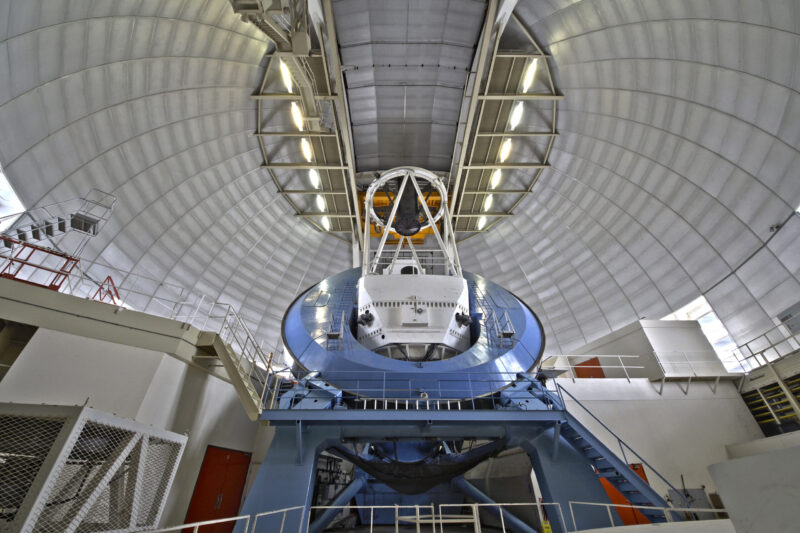
A look at the data
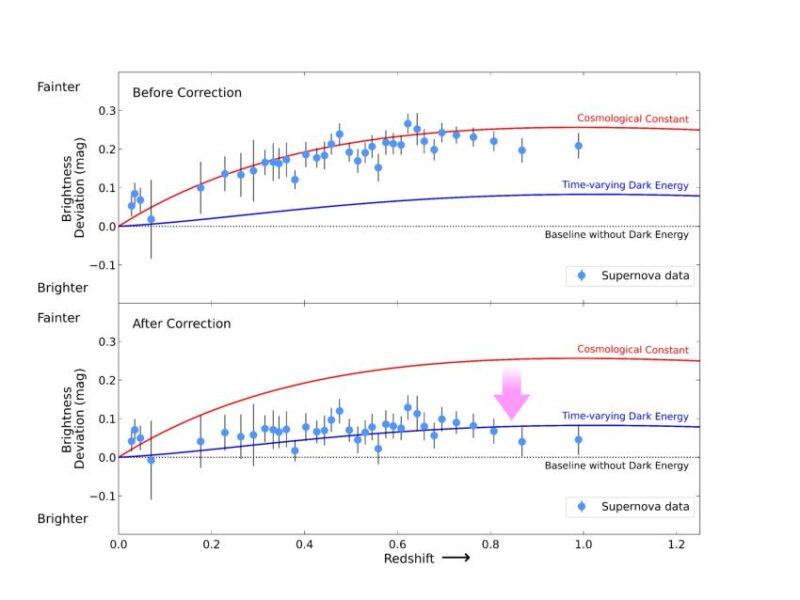
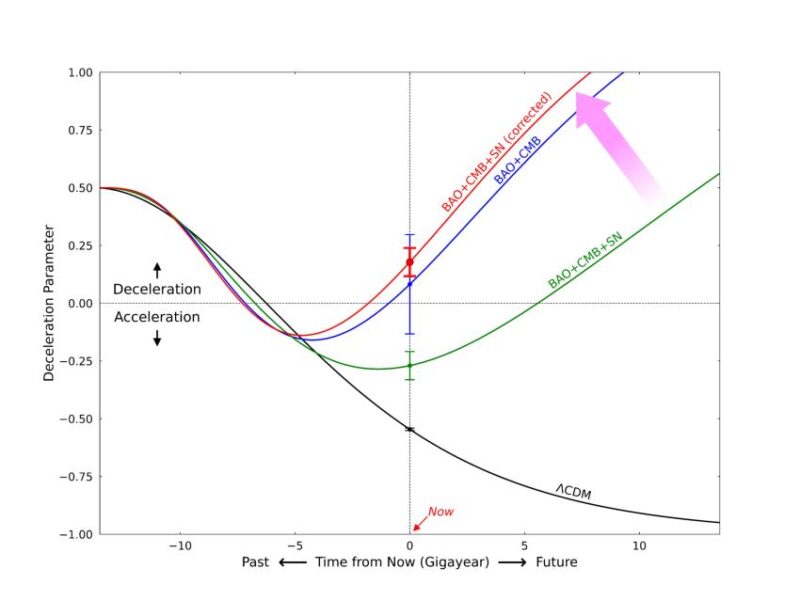
The universe’s expansion is not rapidly accelerating
Most surprising of all, this combined analysis indicates the universe is not accelerating today as previously thought. Instead, it has already transitioned into a state of decelerated expansion.
Professor Lee said:
In the DESI project, the key results were obtained by combining uncorrected supernova data with baryonic acoustic oscillations measurements. This lead to the conclusion that while the universe will decelerate in the future, it is still accelerating at present.
By contrast, our analysis – which applies the age-bias correction – shows that the universe has already entered a decelerating phase today. Remarkably, this agrees with what is independently predicted from BAO-only or BAO+CMB analyses, though this fact has received little attention so far.
To further confirm their results, the Yonsei team are now carrying out an “evolution-free test.” It uses only supernovas from young, coeval host galaxies across the full redshift range. The first results already support their main conclusion.
Co-author Chul Chung said:
Within the next five years, with the Vera C. Rubin Observatory discovering more than 20,000 new supernova host galaxies, precise age measurements will allow for a far more robust and definitive test of supernova cosmology.
The Vera C. Rubin Observatory, which sits on a mountain in the Chilean Andes, is home to the world’s most powerful digital camera. It began scientific operations this year and could answer vital questions about our own solar system and the wider universe.
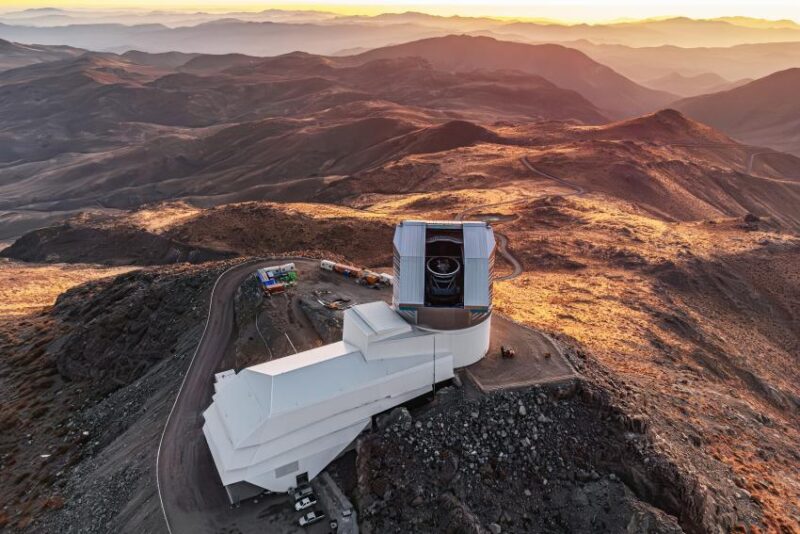
Dark energy is still mysterious
After the Big Bang and the rapid expansion of the universe some 13.8 billion years ago, gravity slowed it down. But in 1998, it was established that 9 billion years after the universe began, its expansion had started to speed up again, driven by a mysterious force.
Astronomers dubbed this dark energy. But despite it making up about 70% of the universe, it is still considered to be one of the greatest mysteries in science.
Last year, data from DESI in Tucson, Arizona, suggested that the force exerted by dark energy had changed over time. And more evidence for that has been growing ever since.
The hope is that with these new tools in their arsenal, astronomers will now be better equipped to find clues about what exactly dark energy is and how it influences the universe.
Bottom line: New research suggests that we don’t live in an rapidly accelerating, expanding universe after all. DESI data suggest the universe’s expansion is already slowing.
Via Royal Astronomical Society
Read more: A new data release hints dark energy may be weakening
The post Universe’s expansion is slowing down, not speeding up first appeared on EarthSky.
Stay Informed With the Latest & Most Important News
Previous Post
Next Post
-
 01Two Black Holes Observed Circling Each Other for the First Time
01Two Black Holes Observed Circling Each Other for the First Time -
 02From Polymerization-Enabled Folding and Assembly to Chemical Evolution: Key Processes for Emergence of Functional Polymers in the Origin of Life
02From Polymerization-Enabled Folding and Assembly to Chemical Evolution: Key Processes for Emergence of Functional Polymers in the Origin of Life -
 03Astronomy 101: From the Sun and Moon to Wormholes and Warp Drive, Key Theories, Discoveries, and Facts about the Universe (The Adams 101 Series)
03Astronomy 101: From the Sun and Moon to Wormholes and Warp Drive, Key Theories, Discoveries, and Facts about the Universe (The Adams 101 Series) -
 04True Anomaly hires former York Space executive as chief operating officer
04True Anomaly hires former York Space executive as chief operating officer -
 05Φsat-2 begins science phase for AI Earth images
05Φsat-2 begins science phase for AI Earth images -
 06Hurricane forecasters are losing 3 key satellites ahead of peak storm season − a meteorologist explains why it matters
06Hurricane forecasters are losing 3 key satellites ahead of peak storm season − a meteorologist explains why it matters -
 07Binary star systems are complex astronomical objects − a new AI approach could pin down their properties quickly
07Binary star systems are complex astronomical objects − a new AI approach could pin down their properties quickly












